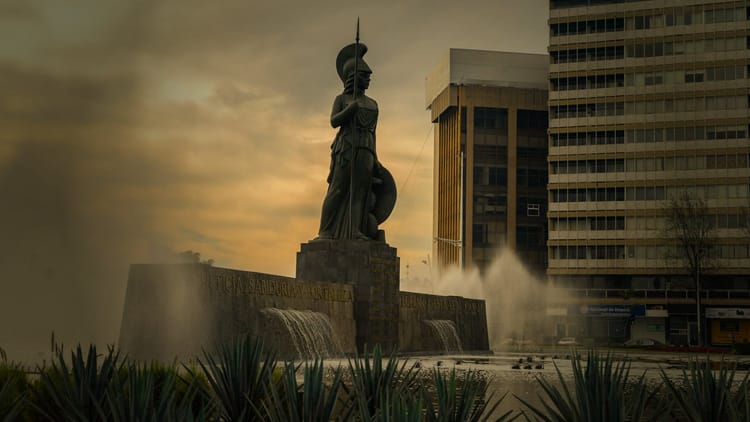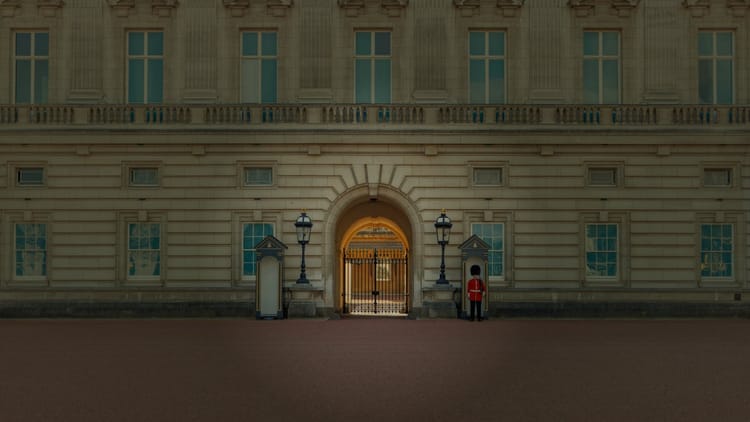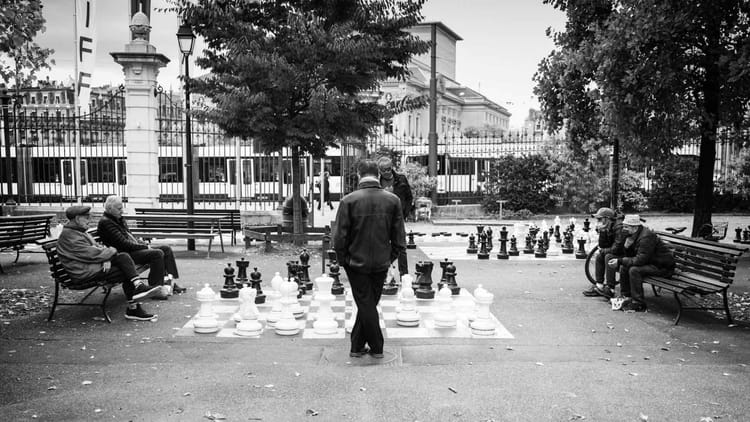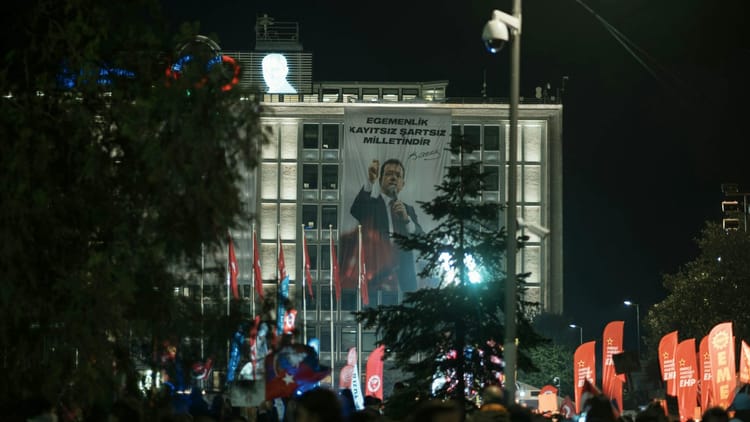The vanishing of al-Fasher

Recently: How much does North Korea depend on China and Russia for its future? Rachel Minyoung Lee on nuclear weapons, technology transfers, and a newly emboldened Kim Jong Un.
Today: What’s happened in western Sudan? Bloodstains on the ground are visible from space, while a communication blackout makes verification nearly impossible.
+ For members: Is the world entering a new era of catastrophic risk? Serhii Plokhy’s new book, The Nuclear Age: An Epic Race for Arms, Power, and Survival.
& New music from Rosalía ...
Where did they go?
The UN Human Rights Council ordered an urgent investigation on Friday into circumstances at the city of al-Fasher in Sudan, where tens of thousands remain unaccounted for three weeks after the Rapid Support Forces seized the city following an 18-month siege. Around 250,000 people were trapped when the city fell on October 26. Nearly 100,000 have since fled. The rest remain missing.
The United Nations’ human rights chief, Volker Türk, told the Security Council that bloodstains on the ground can be seen from space. Survivors describe mass killings, sexual violence, and RSF fighters separating people by gender and ethnicity. A 24-year-old man told the UN Population Fund (UNFPA) that of 200 people in his group, only four who could pay ransom survived four RSF checkpoints. The UNFPA confirmed that RSF fighters killed at least 460 at al-Fasher’s maternity hospital.
Yale University’s Humanitarian Research Lab noticed something unusual: Unlike previous RSF attacks that showed visible mass exodus in satellite imagery, this time, there’s no movement. “The majority of civilians are dead, captured, or in hiding,” Yale researchers concluded. Some fled and died trying. Some were killed in the city. RSF fighters are forcibly returning others to al-Fasher, where the UN says thousands of elderly, disabled, and wounded remain trapped. A communication blackout makes verification nearly impossible. The scale suggests something systematic. A quarter-million people were there. Only a fraction reached safety.

Meanwhile
- A rare defeat for the American president. The U.S. House of Representatives voted 427-1 on Tuesday to force the Department of Justice to release all records from its investigation into the convicted sex offender Jeffrey Epstein. The development follows months of White House pressure not to, while President Donald Trump has repeatedly called the Epstein files a “hoax,” though he reversed course over the weekend, supporting their release. Louisiana’s Representative Clay Higgins cast the sole “no” vote. Epstein accusers watched from the gallery and cheered. Hours later, the Senate passed the bill by unanimous consent. House Republicans, including Marjorie Taylor Greene of Georgia—who Trump now describes as a “traitor”—defied him to force the vote. The legislation now goes to his desk.
- ‘Things happen.’ Trump, in the meantime, greeted Saudi Arabia’s Crown Prince Mohammed bin Salman on Tuesday with military flyovers and a red carpet—the crown prince’s first U.S. visit since the 2018 killing of the U.S.-based journalist Jamal Khashoggi at the Saudi consulate in Istanbul. Asked about the murder, Trump said “things happen” and claimed bin Salman “knew nothing about it,” contradicting the Central Intelligence Agency. Trump announced F-35 sales and discussed Saudi Arabia’s US$600 billion investment pledge. Khashoggi’s widow pleaded publicly for Trump to help recover her husband’s body.
- International guardianship in Gaza. The UN Security Council voted 13-0 on Monday (with China and Russia abstaining) to endorse Trump’s Gaza plan. It establishes an International Stabilization Force and “Board of Peace,” which Trump would chair. The resolution offers a path to Palestinian statehood—but only after reconstruction and Palestinian Authority reforms, with no timeline. Hamas rejected it as imposing “guardianship.” Israel’s Prime Minister Benjamin Netanyahu praised the plan but called the statehood provision “unacceptable.”
- A death sentence in absentia. Bangladesh’s International Crimes Tribunal sentenced ousted Prime Minister Sheikh Hasina to death on Monday for ordering the deadly crackdown on student protests that killed up to 1,400 people last year. Hasina has been in self-imposed exile in India since August 2024, when protesters forced her from power after 15 years. The tribunal also sentenced her former home minister to death. Bangladesh has demanded that India extradite both immediately; India said it would “engage constructively” but didn’t commit. Hasina’s party has called for a national shutdown.
- No to all of the above in Ecuador. Voters in the Andean state rejected all four referendum questions put to them on Sunday—on foreign military bases, party-funding cuts, legislative cuts, and a constitutional rewrite—defying polls and crushing President Daniel Noboa’s Trump-aligned security agenda. With Latin America’s highest homicide rate (50 per 100,000), Noboa had pitched foreign bases as the security solution. Turnout was mandatory. The margin was decisive.

Finally, a treadmill you’ll stick with
Meet the Aviron Victory, the only treadmill powered by game psychology and industry-leading hardware to make working out something you actually look forward to—and to keep you coming back.
Use code VICTORY50 for an additional $50 off and start your 30-day trial, risk-free.
From the latest despatch
Atomic age
Is the world entering a new era of catastrophic risk? Serhii Plokhy, The Nuclear Age: An Epic Race for Arms, Power, and Survival.
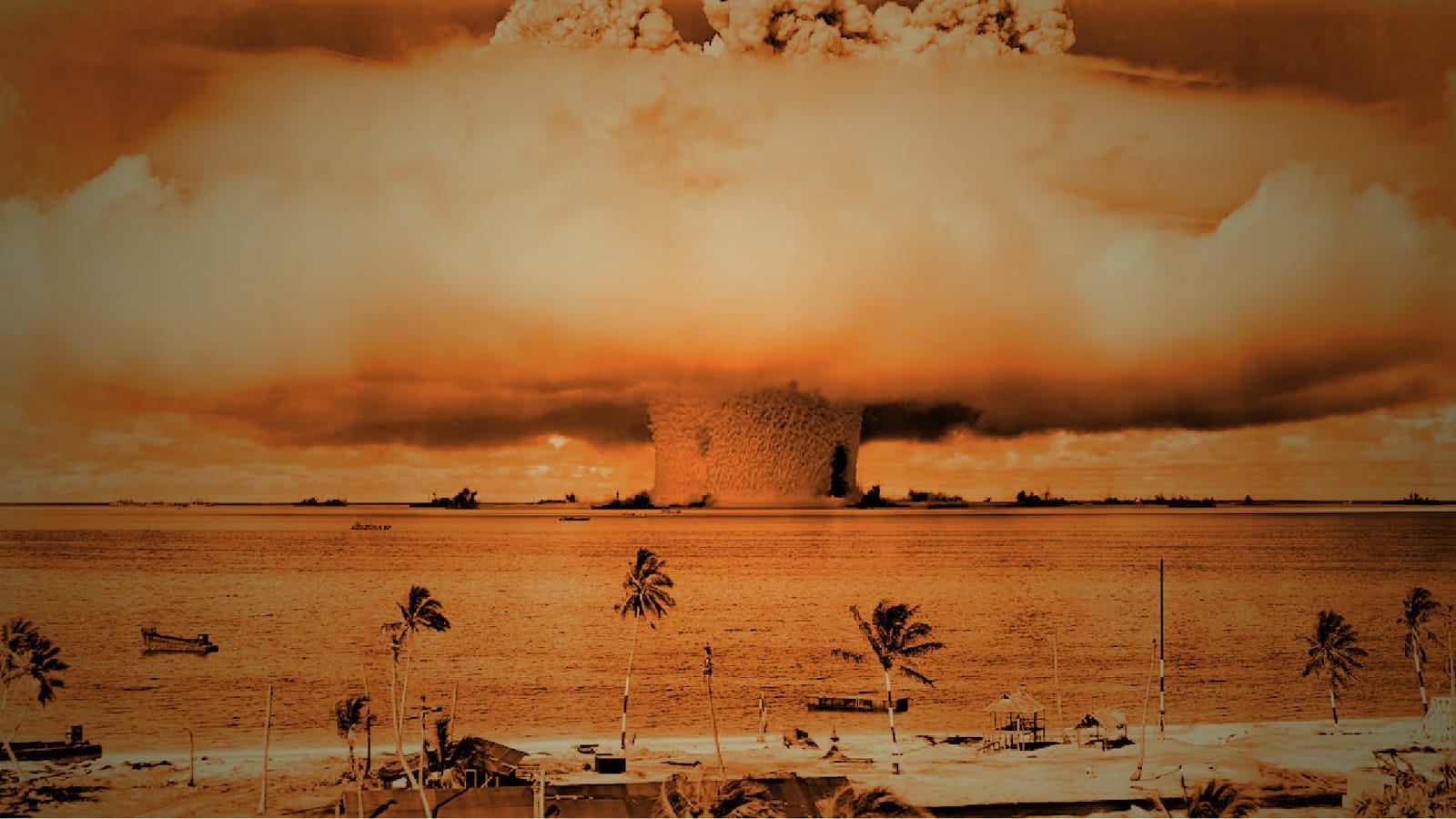
Last week, Moscow’s Foreign Minister Sergey Lavrov said that if the United States were to test nuclear weapons, “Russia will respond in kind.” About two weeks earlier, U.S. President Donald Trump said he’d instructed the Pentagon to resume nuclear testing “immediately.” It’s not completely clear what that means, seeing as Trump’s order is to resume testing “on an equal basis.” But the last known time Russia tested a nuclear weapon was in 1990, and China in 1996. Russia did test a nuclear-powered missile in October, but not one carrying a nuclear payload. It could be Trump had North Korea or India or Pakistan in mind, which have carried out tests of nuclear weapons even following the Comprehensive Nuclear-Test-Ban Treaty of 1996. Or it could be he’s relying on classified information.
But what seems clear is that Russia has threatened to use nuclear weapons in its war with Ukraine. Neither is this the only nuclear risk in play at the moment. Two nuclear powers, India and Pakistan, exchanged fire over days last May. And in June, the United States bombed Iranian nuclear-enrichment sites.
Is this a new era of nuclear risk?
Your loyal guide to a changing world.
Membership with The Signal means exclusive access to premium benefits:
- Regular profiles on the questions behind the headlines
- In-depth feature interviews with our network of specialist contributors from across America and around the world
- The despatch, our weekly current-affairs and cultural-intelligence briefing
- Early access to new products, including print extras
It also means vital support for an independent new enterprise in current-affairs journalism.
New music
‘Porcelana’
The Spanish powerhouse Rosalía is back with an orchestral ode to heartbreak—about the end of her engagement to the Puerto Rican reggaetonero Rauw Alejandro. In “Porcelana,” she brings a hip-hop edge to biting sadness, singing of pleasure and pain numbing one another. The strings build, a choir swells, and it all wobbles toward an unsteady end.

